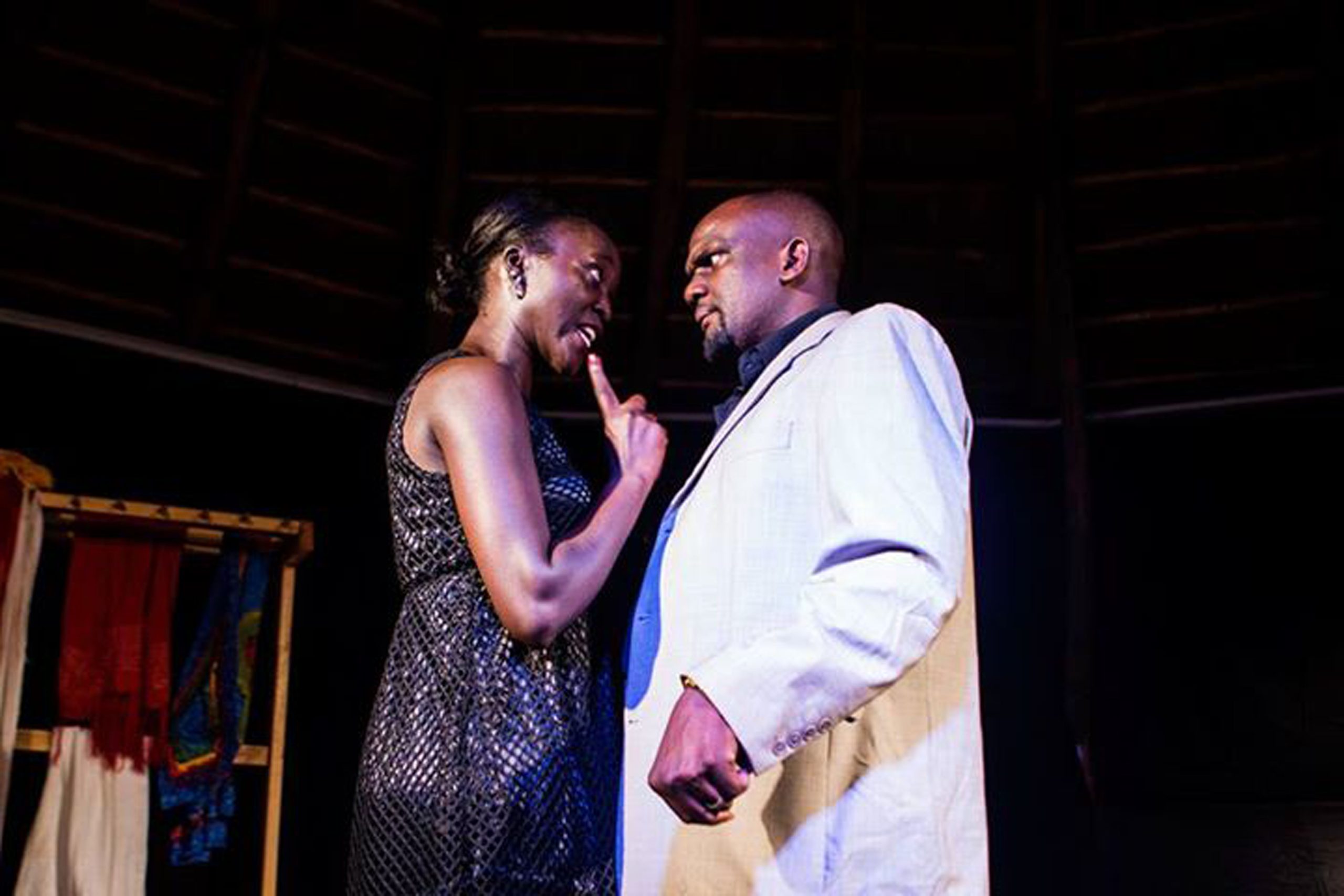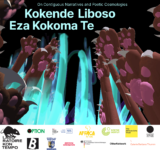Serubiri Moses
Photo Credit: Bwette Photography
Serubiri Moses attended the inaugural Kampala International Theatre Festival and reviews plays by Sitawa Namwalie (Kenya) and Meaza Worku (Ethiopia), reflecting on explorations of private desire in the public domain, the institution of marriage and urban surveillance in Nairobi.
Black Maria on Koinange Street (2010)
Sitawa Namwalie
Desperate to Fight (2011)
Meaza Worku
Two plays at the inaugural Kampala International Theatre Festival of November 2014 focus on young women: one by Ethiopian writer Meaza Worku, “Desperate to Fight” and another by Kenyan author, Sitawa Namwalie titled “Black Maria on Koinange Street”. Curated by Sundance East Africa, the plays were written and developed in the organization’s playwright labs, between 2010 and 2011. Bayimba Foundation in Kampala was a co-organizer for the first edition, whose selection of plays brought together playwrights from Uganda, Kenya, Rwanda, Burundi, Tanzania, and Ethiopia.
Both “Black Maria” and “Desperate to Fight” are told from the perspective of young women: Marta is in her 30s and has been divorced three times while Nerima is a student at a university in Nairobi. Contrary to a specific notion of a ‘Mother Africa,’ Marta and Nerima are both dominant narrators, both masters of their own narratives, and out to orchestrate their desires; yet both are vulnerable, and somewhat naïve. Their lives undergo change; an internal and deeply psychological questioning of their role, or place within, for Marta, the institution of marriage, and, Nerima, the streets of Nairobi.
As both these institutions are public, the plays form tensions between public and private. An exploration of private desire in the public domain.
Directed by Aida Mbowa, with a two-person cast of Philip Luswata and Gladys Oyenbot, “Desperate to Fight” explores mental violence. Set in Marta’s bedroom, the audience sits on stools only a meter away from Marta’s bed which is lit meticulously from the thatched roof above. Going by the set, we are in Marta’s domain. As she discusses her neighbors’ love life, she throws clothes around and darts across the stage to lead against the separating wall. Mbowa’s ingenious strategy turns their fights into drum music, making us more curious about Marta’s thoughts. She goes through three divorces written as a monologue with occasional flashbacks. Her marriages begin with her lover walking into the door, and end with their exit from the stage. The play is a work of modern Ethiopian theatre. The use of the extended monologue, that transition into sections of dialogue is gripping.
In the course of the play I thought about marriage as an institution. I pored over the narrativization of the institution. Marta is the character through which the narrative is driven. However, in that sense these are contemplations on an Ethiopian institution. What are the thoughts of a woman who has had three divorces? What are her thoughts about her neighbors, an argumentative couple? Or, what are her thoughts about the men she divorced, and their thoughts about her?
One of the things that Marta understands is that she wants ‘World War 2’ for a marriage. Perhaps, this is where political ideas seep in. Any institution whose members want war is a troubled institution. Could it be a metaphor for the Ethiopian society? Marta does not make the compromises typical of a young married woman. Her marriages look like storms, yet they do not relent to physical violence. Marta struggles to live in a traditional marriage framework; wanting to submit to it, while pushing against it. She seems trapped in her own system of looking, which makes everything difficult for her, and for everyone.
During the talk session, Luswata mentioned that Marta is unforgiving and quick to move on to the next husband. Is she willing to make the compromise before jerking the door open and yelling for her husbands to leave? What does this say about traditional marriage? Indeed, about social institutions? The men in her life discourage her from her own chaos, but Marta is consciously driven towards ending the marriages. Her impatience and intolerance has become harmful to her. Against the racing clock, will she get a family of her own?
Regardless of whether the work focuses on an impatient and ‘unforgiving’ character, it is a powerful take on contemporary Ethiopian society. The metaphors of choice not only point to personal but political reality. The performance agitates, yet remains potent source of reflection and meditation on power, marriage, and institution.

Presented as a reading by Sitawa Namwalie, “Black Maria on Koinange Street” is performed with the author in the role of Nerima and her team of girlfriends, her mother, the policemen, and a character known as Redempta, a prostitute Nerima finds inside the Black Maria. The city of Nairobi has continually transformed itself since the 1970s. Once the streets off Uhuru Highway were safe avenues, but today they are dark alleys. Black Maria goes back and forth during a period in the 1980s when army officers began to roam the streets, on the heels of postcolonial power struggles. As insecurity was growing in Nairobi. The meditation on cities and how they change is a poet’s task. Cities and their protagonists are whole constellations, among which is the Black Maria, an element of urban surveillance, yet another great theme during the inaugural Kampala International Theatre Festival seen in the play, “A Radio Play” from Rwanda in which surveillance, and subsequent censorship, leads to a radio DJ’s murder.
“Black Maria” is a conversation between four girls: Nerima, Wangari, Charity and Judy. It is a one act play which starts off pacing, reaching a point of curiosity in which Nerima ‘finds Kenya’. It is set, probably, at the Nairobi University where Nerima and her friends are studying. At some point in Nerima’s education, she has a face-off with the police on Koinange Street. She ends up in the Black Maria after a policeman slaps her. She responds with disbelief, saying, ‘police protect innocent people.’ Nerima realizes that in this Koinange Kenya, her social status is no matter. Her life suddenly caves in from visions of glamorous New York to the filthy vie anterieure of the Black Maria. An overwhelming realization for a sensitive, yet determined, young woman. In the Black Maria, surveilling Nairobi city, she is raped, taking us back to the days (of Idi Amin) when ‘Panda Gaali’ policemen raped, killed, and killed some more. How modern is this vision! How present!







